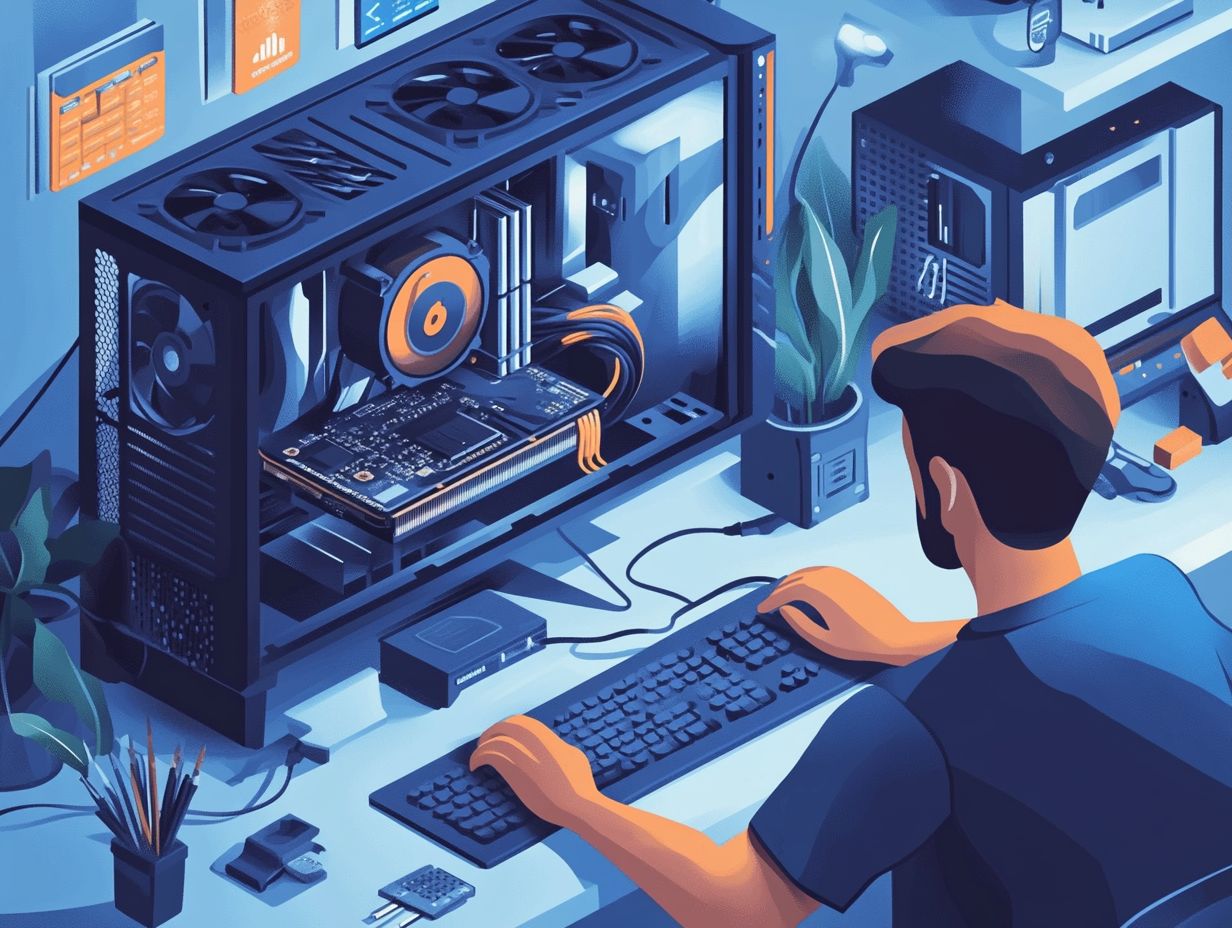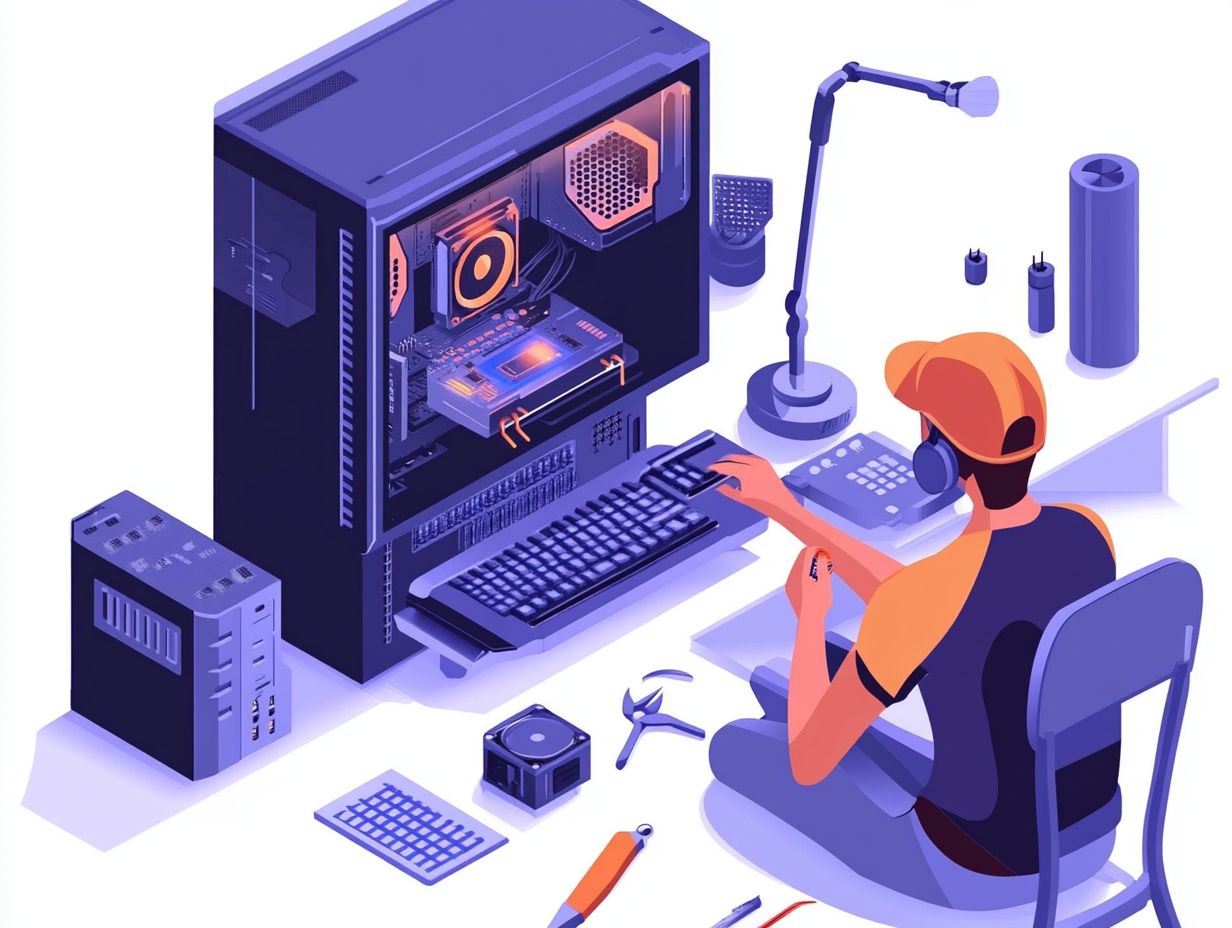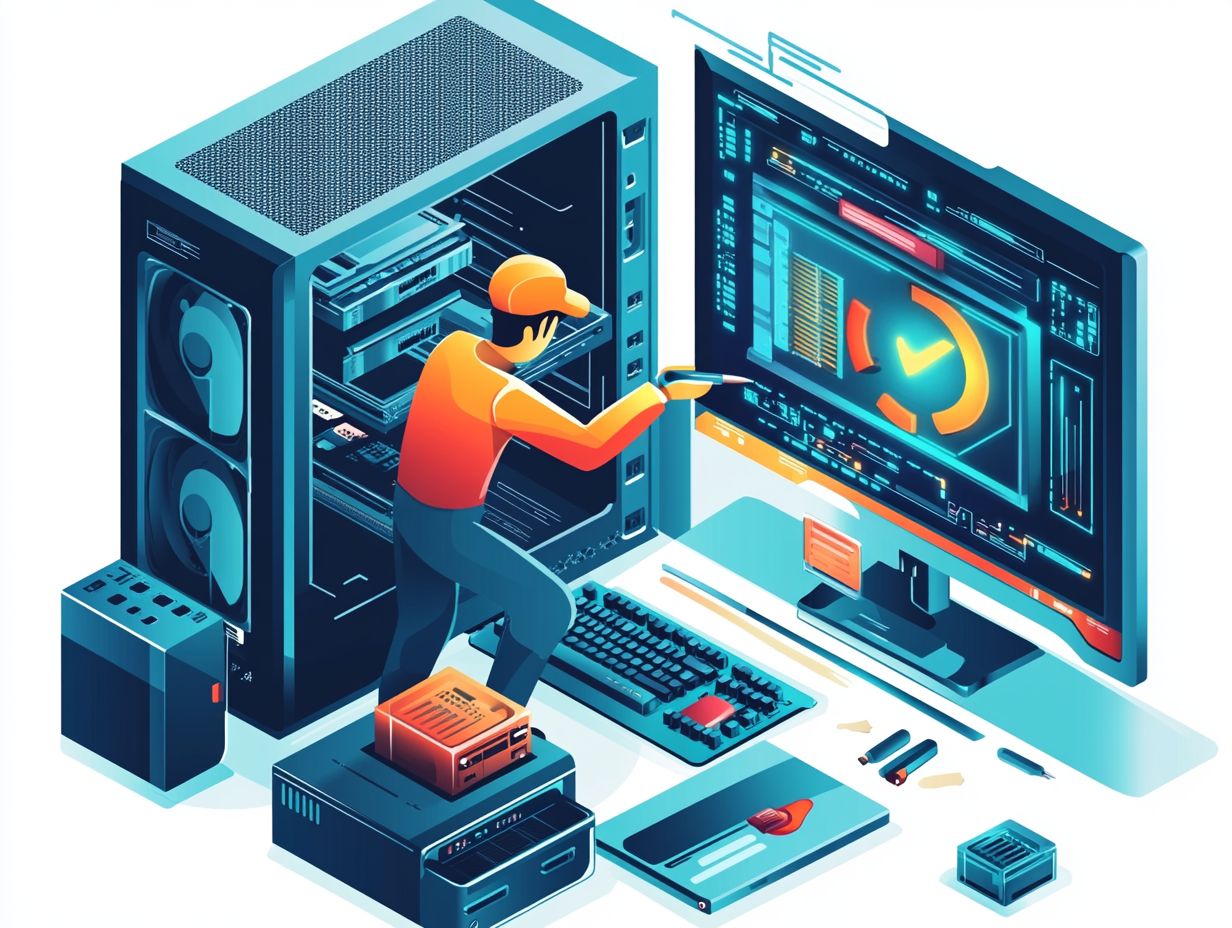Is your computer feeling sluggish and driving you up the wall? Trust me, you’re not the only one. A lot of us run into performance issues that can be traced back to things like outdated hardware or just way too much software clutter. Fear not! There are a few simple things you can do to Make Your Computer Faster.
In this article, I’m diving into some practical solutions to help speed up your machine. I ll cover essential hardware upgrades, effective software optimizations, and regular maintenance routines plus, we can’t forget about how your internet connection plays a role too.
I ll also chat about when it might be time to bite the bullet and consider getting a new computer altogether. Get ready to turn that slowpoke of a computer into a speedy powerhouse!
Why is My Computer Slow?
If I ve ever found myself wondering, Why is my computer so slow? , I know I m not alone. A sluggish computer can be a real pain, especially when I need it for work, gaming, or just keeping in touch with friends.
There are all sorts of reasons my computer might be dragging its feet, from background processes hogging resources to outdated hardware that just can t keep up with what I need. Figuring out what s slowing things down is the first step toward finding a fix.
For example, those sneaky background processes, like automatic updates or antivirus scans, often run without me even noticing, quietly draining my system s memory and processing power. And let s not forget about all those unnecessary files temporary files and old downloads can stack up like clutter in a garage, taking up valuable disk space and making it harder for my system to run smoothly.
By keeping an eye on performance and doing regular system checks, I can spot these issues before they turn into major headaches. Tackling these common culprits can really breathe new life into my computer, making everything run smoother and more responsively.
Hardware Upgrades
I ve found that hardware upgrades, such as a RAM upgrade or SSD installation, can really breathe new life into a sluggish computer and make a huge difference in performance and user experience.
When I upgrade components like RAM, install a Solid State Drive (SSD), or even tweak my CPU through overclocking, it s like giving my system a whole new lease on life. These enhancements not only speed things up but can also extend the lifespan of my computer, helping me get the most out of my investment.
Identifying and Upgrading Key Components
Identifying and upgrading key components of my computer is essential for optimizing performance and speeding things up. I ve found that running performance tests and benchmarking helps me understand which parts really contribute to my system’s speed. Whether I need to boost my RAM for better multitasking or swap out my hard drive for an SSD, knowing what to prioritize can lead to some pretty significant improvements in my computer’s efficiency.
This whole process involves checking out things like CPU speed and the capabilities of the graphics card. I also like to conduct thorough performance assessments to see how all these elements work together in the overall setup. Using benchmarking tools lets me compare my system s performance against established standards, making it easier to figure out what upgrades I should go for. Plus, evaluating how I manage resources helps me spot any bottlenecks, ensuring that each component works smoothly with the others.
By focusing on these key aspects, including memory management and application optimization, I can create a balanced system that really caters to my performance needs.
Software Optimizations
I ve learned that software optimizations are just as crucial as hardware upgrades when it comes to boosting my computer’s speed and overall performance. Simple things like doing a disk cleanup, defragmenting, and keeping my software updated can really make a difference in reducing slowdowns and improving responsiveness.
Plus, I always scan for malware, conduct malware removal, and optimize my applications to make sure my system runs smoothly and efficiently, no matter what I m working on.
Removing Unnecessary Programs and Files
Removing unnecessary programs and files is a simple yet super effective way to boost my computer’s performance. Over time, I ve noticed that application bloat tends to pile up, taking up precious disk space and slowing everything down. By regularly organizing my files and uninstalling programs I no longer use, I can free up resources and really enhance my computer’s efficiency.
This practice not only clears up disk space but also cuts down on the clutter that can make my digital life chaotic. For example, I like to create dedicated folders for different types of files documents, images, downloads you name it. It really helps streamline my access and makes searches a breeze.
I always back up important documents before deleting anything, just to ensure I don t accidentally lose something crucial, while also encouraging a tidier approach to file management. In the end, having an organized file system means smoother operations and faster access times, which definitely improves my overall user experience.
Adopting these habits, alongside regular computer maintenance, keeps my system running smoothly and makes my time on the computer way more enjoyable.
System Maintenance
I ve found that regular system maintenance is crucial for keeping my computer running smoothly and avoiding those annoying slow performance issues down the line.
By doing routine tasks like system checks, monitoring performance, and even tackling some technical stuff like system restores, I can really extend the life of my hardware and software, especially through scheduled maintenance.
Staying on top of these tasks not only boosts performance but also helps me avoid any potential headaches in the future.
Regular Cleaning and Maintenance Tasks
Regular cleaning and maintenance tasks are crucial for keeping my computer running smoothly and efficiently.
These practices cover a range of activities that can really boost my system’s overall performance. For example, when I do disk defragmentation, I m reorganizing fragmented data, which means my computer can access information much faster.
Plus, clearing out temporary files frees up some much-needed disk space. I also make it a point to keep my software and drivers updated to avoid any vulnerabilities or compatibility issues that could slow things down.
I don t forget the hardware either; I regularly check that the fans are dust-free because that really helps prevent overheating. By making these maintenance tasks a priority, I can not only extend the lifespan of my hardware but also create an optimal environment for seamless operation.
External Factors Affecting Speed
I ve noticed that external factors can really impact my computer’s speed and performance, often in ways I wouldn’t have thought of.
For example, if my internet connection is slow, it can seriously mess with my ability to download files or stream content smoothly. Plus, using external devices like USB drives can also slow things down and make my system less responsive.
By understanding how these factors play into my system, I can take steps to optimize things, like improving my network and keeping an eye on performance.
Internet Connection and External Devices

I ve noticed that my internet connection and external devices can really affect my computer’s speed and overall performance more than I d like to admit. A weak internet connection leads to painfully slow downloads and annoying lag when I m trying to do anything online, while any poorly configured external devices just sap my resources.
When these elements aren t working well, including cooling system and power supply, it can get super frustrating, especially when I m in the middle of something important or trying to enjoy some entertainment.
To boost my internet connectivity, I think about upgrading to a higher bandwidth plan or, when I can, using a wired connection. It usually gives me a lot more stability.
I also make it a habit to regularly update the firmware on my router and tweak settings like Quality of Service (QoS) to prioritize the traffic that matters most. And when it comes to external devices, I try to disconnect anything I m not using and keep those drivers up-to-date. It really makes a difference in how smoothly everything runs and speeds up response times.
Alternative Solutions for Slow Computers
When I hit a wall with my slow computer, exploring alternative solutions can really change the game. I ve found that options like cloud computing, virtualization, or even data recovery methods can give me the tools I need to tackle those performance issues head-on.
Plus, reaching out to tech support has helped me discover solutions I didn t even know existed, making sure my computer runs as s smoothly as possible.
When to Consider Replacing Your Computer
Knowing when to think about replacing my computer can really save me time, effort, and money down the line. If my system isn t cutting it anymore like if it can t handle the performance demands of my tasks or if it s always struggling even after I ve upgraded the hardware it might be time to bite the bullet and get a new one. I find it super important to compare my computer’s specs with what I actually need to make a smart decision.
These days, the demands on computing power are no joke, and if my computer is lagging, it can seriously mess with my productivity and creativity. Signs like longer boot times, regular crashes, or feeling like I m running in slow motion when I open multiple applications are usually big red flags. If the latest software is just too much for my current setup, that s a solid cue that upgrading might not cut it.
When I notice that performance benchmarks are consistently going downhill, I really need to weigh the cost of more hardware upgrades against the investment in a brand-new system that can keep up with what I m trying to do.
Frequently Asked Questions
What are some general tips for making a computer faster?

Some general tips for making a computer faster include cleaning up disk space, disabling unnecessary startup programs, and keeping your operating system and drivers updated.
How can I speed up my computer’s boot time?
To speed up your computer’s boot time, you can disable unnecessary startup programs and perform regular maintenance tasks such as clearing temporary files and running a disk cleanup.
What is the best way to upgrade my computer’s hardware for faster performance?
The best way to upgrade your computer’s hardware for faster performance is to upgrade your RAM, install a solid-state drive, and replace your old processor with a newer and faster one.
Are there any software programs that can help speed up my computer?
Yes, there are several software programs available that can help speed up your computer, such as PC optimization tools and defragmentation software.
How can I prevent my computer from slowing down over time?
To prevent your computer from slowing down over time, you should regularly clean up disk space, remove unused programs, and keep your operating system and drivers updated. It’s also important to regularly scan for viruses and malware.
Is it necessary to regularly clean out my computer’s registry to improve performance?
No, it is not necessary to regularly clean out your computer’s registry. In fact, cleaning the registry can sometimes cause more harm than good and is not recommended unless you are experiencing specific issues related to the registry.








